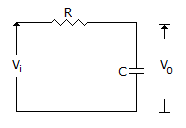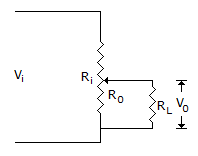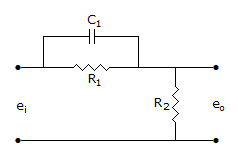ECE :: Automatic Control Systems
-
In the given figure the input frequency is such that R << Xc, then

-
In the given figure, of potentiometer V0 = Vi (R0/Ri) only when

-
A unity feedback system has open loop transfer function
 The closed loop transfer function is
The closed loop transfer function is -
Bellows converts
-
Assertion (A): The steady state response, of a stable, linear, time invariant system, to sinusoidal input depends on initial conditions.
Reason (R): Frequency response, in steady state, is obtained by replacing s in the transfer function by jω
-
Consider the systems with following open loop transfer functions
-
-
The log magnitude curve for a constant gain K is a
-
The compensator of the given figure is a



 Whatsapp
Whatsapp
 Facebook
Facebook






 .
.


 . For the three systems the values of ξωn are 1.8, 2.5 and 2 respectively.
. For the three systems the values of ξωn are 1.8, 2.5 and 2 respectively. 
